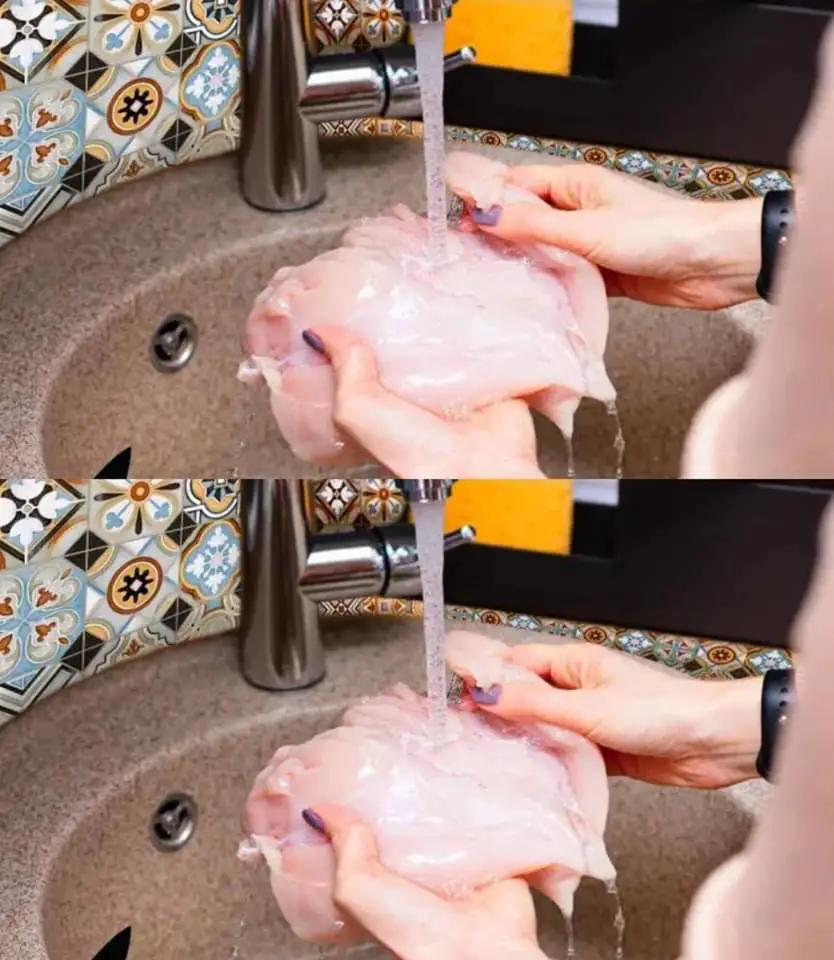Washing raw chicken before cooking is a common practice many people assume helps with cleanliness, but it actually increases the risk of spreading bacteria throughout the kitchen. This practice can cause cross-contamination of surfaces, utensils, and other foods, leading to illnesses like salmonella poisoning. According to the CDC and food safety experts, here are key tips to handle chicken safely:
Why You Shouldn’t Wash Chicken:
Raw chicken is often contaminated with bacteria like Salmonella or Campylobacter, which can be harmful if consumed. Washing chicken in water doesn’t remove these bacteria; instead, it spreads them via splashes onto countertops, dishes, and other foods, increasing the risk of foodborne illness.
Steps for Handling Chicken Safely:
- Store Chicken Properly:
- Always store raw chicken in the lowest part of the fridge or freezer to prevent juices from leaking onto other foods.
- Designate a Cutting Board:
- Use a separate cutting board specifically for raw chicken to avoid cross-contamination with other foods, especially ready-to-eat items like fruits and vegetables.
- Pat Chicken Dry with Paper Towels:
- Instead of washing the chicken, pat it dry with paper towels to remove excess moisture. Discard the towels immediately to minimize the spread of bacteria.
- Wash Hands Thoroughly:
- Always wash your hands with soap and water before and after handling raw chicken. This reduces the transfer of bacteria from the chicken to other kitchen surfaces.
- Cook Chicken to a Safe Temperature:
- Use a meat thermometer to ensure the chicken reaches an internal temperature of 160°F (73.8°C) to kill any harmful bacteria. Check the thickest part of the meat, avoiding bones, for the most accurate reading.
- Clean Surfaces and Utensils:
- After handling raw chicken, wash cutting boards, knives, countertops, and other tools with hot soapy water to remove any bacteria that might have transferred.
Preventing Salmonella:
Salmonella, one of the leading causes of food poisoning, can easily be transmitted through contaminated chicken. Ensuring proper cooking and handling methods is critical in preventing infection. In the U.S., one in twenty-five chicken packages is estimated to contain salmonella, making it crucial to follow food safety protocols consistently.
By avoiding the habit of washing raw chicken and following safe cooking practices, you can reduce the risk of foodborne illnesses and enjoy chicken safely.

